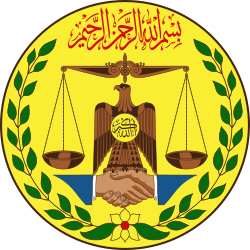| |||||||||||||||||||||||||||||||||
82 seats in the House of Representatives of Somaliland 42 seats needed for a majority | |||||||||||||||||||||||||||||||||
|---|---|---|---|---|---|---|---|---|---|---|---|---|---|---|---|---|---|---|---|---|---|---|---|---|---|---|---|---|---|---|---|---|---|
| |||||||||||||||||||||||||||||||||
 Results by constituency. | |||||||||||||||||||||||||||||||||
 |
|---|
Parliamentary elections were held in Somaliland on 29 September 2005. [1] They were the first multiparty parliamentary election conducted in the country.



